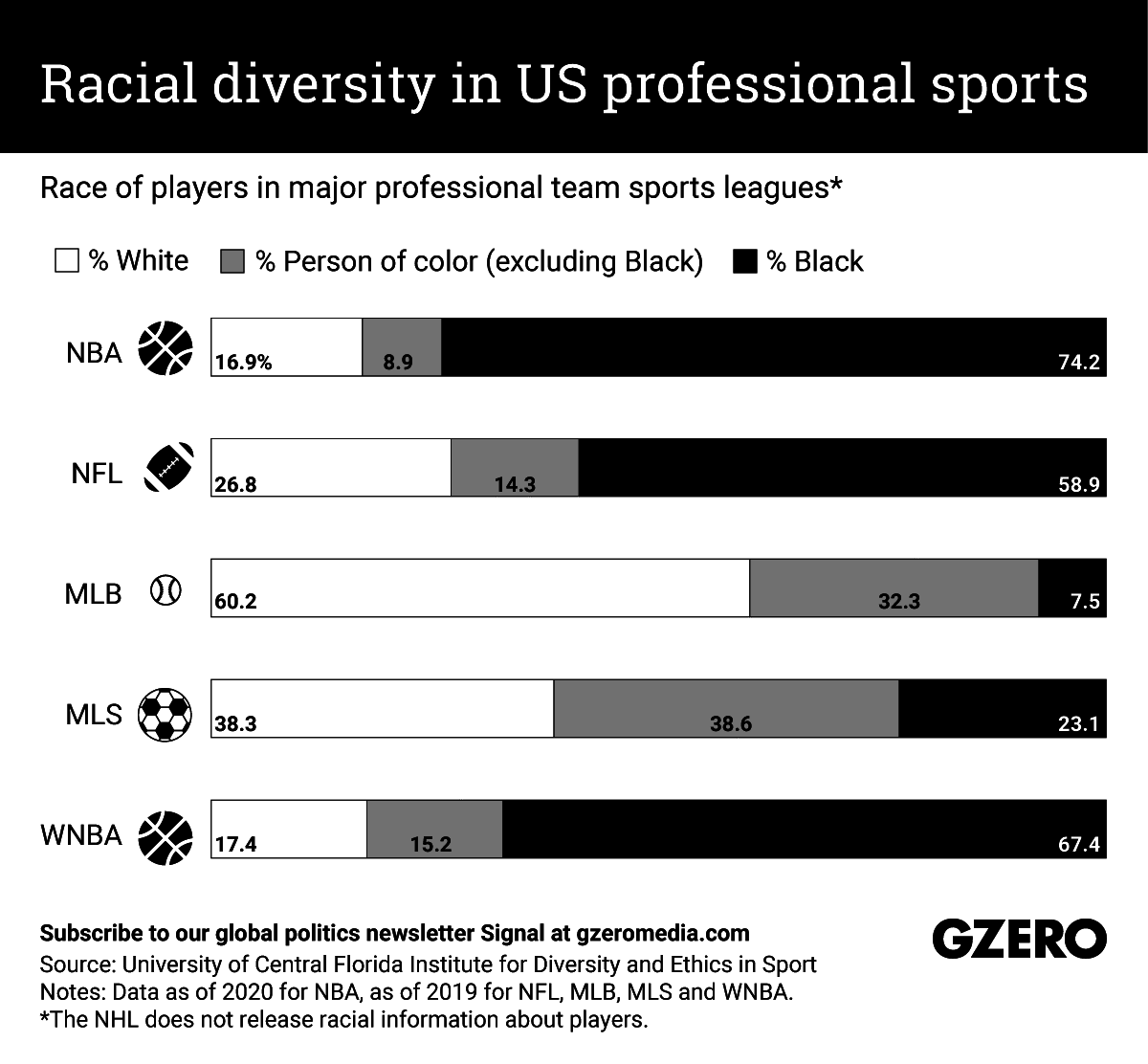August 31, 2020
In an unprecedented step to protest racial injustice, several US professional sports teams last week staged a walkout after the shooting of an unarmed Black man by a white police officer in Kenosha, Wisconsin. The boycott was initially led by the Milwaukee Bucks of the National Basketball Association, a league where three-quarters of players are Black. But Bucks were soon followed by other teams and sports — including several from Major League Baseball, where whites make up nearly two thirds of players. As professional athletes take bolder stands on the contentious conversation about race relations in the run-up to the November presidential election, we took a look at the racial breakdown of the players in five major US professional sports competitions.
More For You
Bad Bunny during the Super Bowl LX halftime show press conference at Moscone Center.
Kirby Lee-Imagn Images
100 million: The number of people expected to watch the Super Bowl halftime performance with Bad Bunny, the Puerto Rican superstar and newly minted Album of the Year winner at the Grammys.
Most Popular
Think you know what's going on around the world? Here's your chance to prove it.
- YouTube
An imminent US airstrike on iran is not only possible, it's probable.
Americans are moving less — and renting more. Cooling migration and rising vacancy rates, especially across the Sunbelt, have flattened rent growth and given renters new leverage. For many lower-income households, that relief is beginning to show up in discretionary spending. Explore what's changing in US housing by subscribing to Bank of America Institute.
© 2025 GZERO Media. All Rights Reserved | A Eurasia Group media company.
